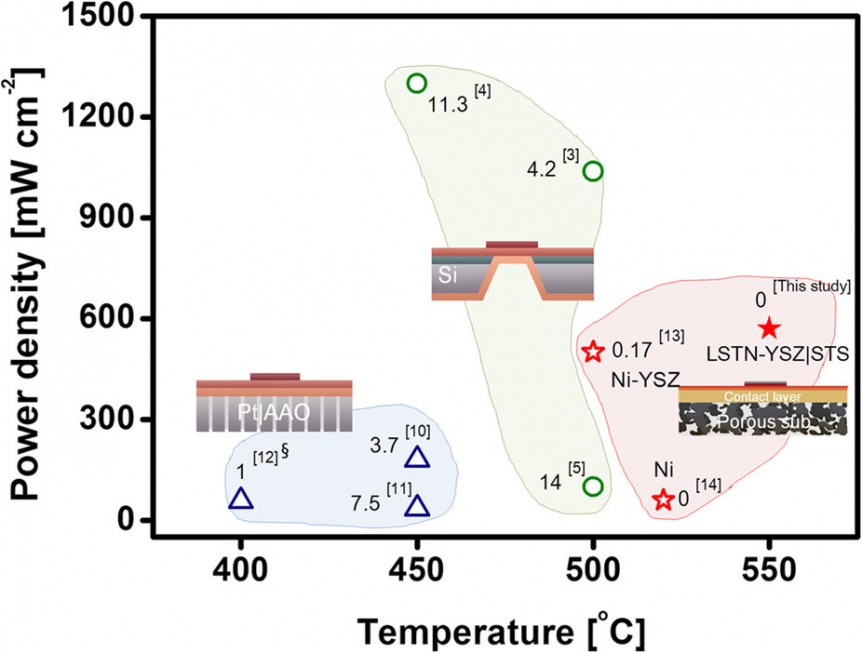Several fuel cell developments show there are lots of options for burning hydrogen, if we can only make and distribute it in great enough quantities. Most noteworthy, fuel cells could provide increased endurance and range compared to batteries. Professor Gyeong Man Choi and his Ph.D. student Jun Joong Kim, working at the Pohang University of Science & Technology (POSTECH) in South Korea, have developed a miniaturized solid oxide fuel cell (SOFC) that can fly a drone for more than an hour. On the consumer front, their fuel cell would allow cell phones to be charged just once a week. The professor and his students created the fuel cell to directly replace the batteries normally found in cell phones, laptop computers, and drones. Their third generation SOFC “has been highly evaluated” because it is not restricted to smaller forms, but could be scaled to larger capacities “that can be used for a vehicle.” The fuel cell has a simple structure and …
Cheap and Dirty Fuel Cells – Good News for Hydrogen
Hydrogen fuel cells would be just about the most wonderful power producers in the world if they weren’t so expensive and so finicky about their diet of hydrogen. Their catalysts, usually made of costly platinum, can be destroyed by impurities in the gas. Making high-purity hydrogen is an exacting task and adds to the expense of operation. Two studies by scientists at the U.S. Department of Energy’s (DOE) Brookhaven National Laboratory; one in conjunction with researchers at South Korea’s Ulsan National Institute of Science and Technology (UNIST), Korea Institute of Energy Research (KIER), show that it may be commercially possible to make less expensive catalysts with available materials, and in one case, use “dirty” hydrogen that would otherwise destroy fuel cells. The reduced price of making such hydrogen would further add to operational economies. Green Car Congress reports that Brookhaven and UNIST have discovered, “a new family of non-precious metal catalysts based on ordered mesoporous porphyrinic carbons (M-OMPC) with high …

